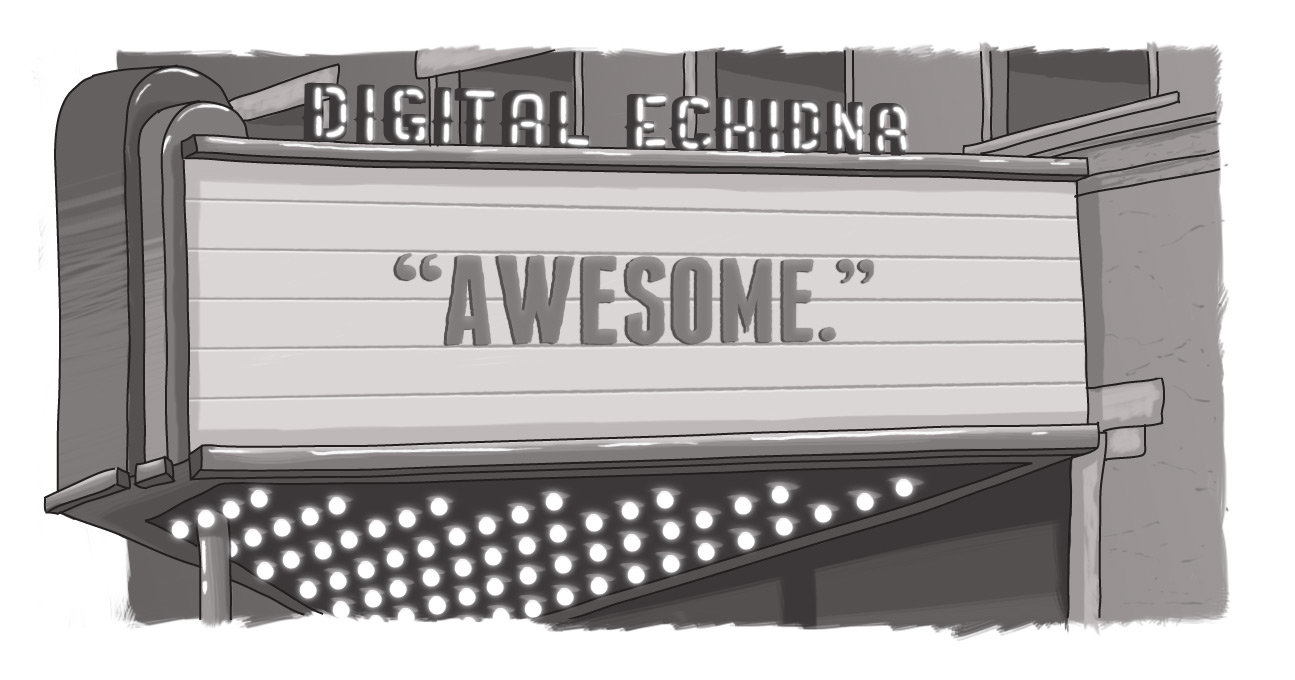More Messaging Lessons from the Fringes

Word of mouth is incredibly powerful. And with the importance of social media in our lives, it's essential to your success that those words are the right ones.
A couple of years ago, I shared some thoughts from the London Fringe Festival's showcase event, finding lessons to be extracted from how performers market themselves to an audience that could be applied in a business setting. Those lessons still apply, but I want to talk about virality -- and its pros and cons.
(A quick caveat: Digital Echidna is a proud sponsor and supporter of the London Fringe Festival. We've rebuilt and maintain its website and its head office is actually located in our old property down the road. Again, it doesn't impact my post here, but in the interest of full transparency...)
I've seen more than my fair share of Fringe shows over the years, thanks in large part to my role as a reviewer. And after at least three-quarters of them, a performer comes out, thanks the audience, and says something to the effect of, "If you liked the show, tell your friends! If you hated it, tell your enemies." or "If you liked it, tell everyone! If you hated it, just wait a couple of weeks."
We all laugh and go on our merry way. But the fact of the matter is that word of mouth rarely works that way. And with social, word of mouth can have far more rapid -- and potentially devastating -- impact to your operation.
Human nature being what it is, we love to complain publicly and praise privately. Twitter is filled with people @ mentioning companies with their complaints, but rarely do you hear a "Sally did a great job, today @corporationX". Many people use Twitter as their primary, and very public, forum for discourse, as opposed to privately contacting the company to see if their issues can be resolved.
For a Fringe performer, word of mouth is vital. They have a limited time to mount their show and limited budgets to advertise. So you have to hit the ground running and hope people tell their friends.
After all, that's who we trust. In Nielsen's most recent Global Trust in Advertising survey (published in September 2015), 83 per cent of the people surveyed said that "Recommendations from people I know" were the most valuable form of advertising. Consumer opinions posted online and editorial content were way behind at 66 per cent each.
And it's not surprising. We have a history with our friends and acquaintances. We have context for what they like and what they don't. And, chances are, if we're friends with them, we share some similar interests and inclinations. So if they like something, there's a good chance I will too.
It's not a hard-and-fast rule, of course. We're talking sweeping generalities. But those generalities are what drives social engagement and can spur a conversation to go viral.
Of course, this can have a negative effect as well. As we've seen with the spread of biased news reports and false facts, who creates content has less of an impact than who shares it. As recent research from the Media Insight Project (a collaboration of the American Press Institute and the Associated Press-NORC Center for Public Affairs Research) shows that "when people see news from a person they trust, they are more likely to think it got the facts right, contains diverse points of view, and is well reported than if the same article is shared by someone they are skeptical of."
Clearly, the best way to get ahead of the word-of-mouth game is to have a good product. If people are pleased with what you provide, they'll tell their friends and acquaintances. From a theatre context, they may post something to the effect of, "I just saw this amazing show. You should go!" You also see it milling about the common areas of venues. As people are waiting in line for a show to start, they'll ask "what have you seen?" or "any shows you've really liked?"
I've had numerous conversations of that sort and am happy to share what I've loved. But people also share what they've disliked.
So what happens if you've delivered something that people didn't like? From a stage perspective, you can't exactly rewrite the whole show. But you can stay on top of the discussion. Reaching out to negative reviewers to solicit their opinion, find out what they didn't like, and how it could be improved can help. Just as with a product, you want your end users to be satisfied. If they're upset, it means you've failed to meet an expectation they have. By involving them in the discussion and actively -- and honestly -- soliciting their opinion, you'll have a better chance of tempering the disappointment.
I've said it before: your harshest critic can become your biggest champion. After all, if they're passionate enough to comment, it means they care. If they were truly indifferent, they wouldn't say a word. A negative comment or a negative review is an opportunity -- one that you can take an action upon.
Why is word-of-mouth important?
SUBSCRIBE TO OUR E-NEWSLETTER
 Subscribe
Subscribe


